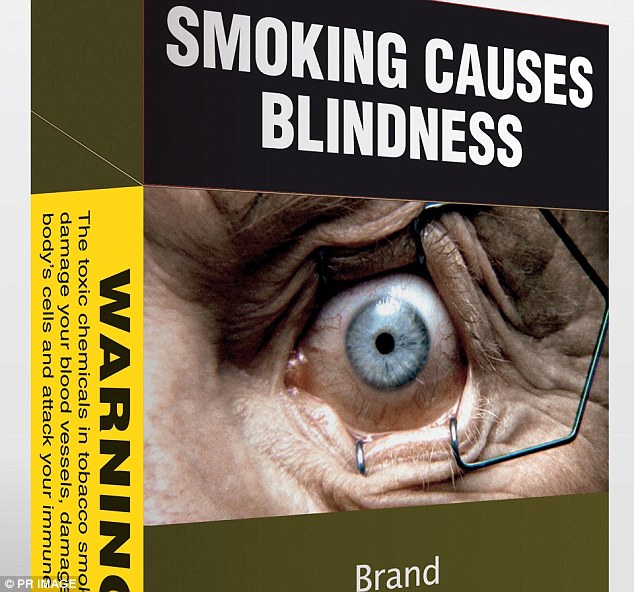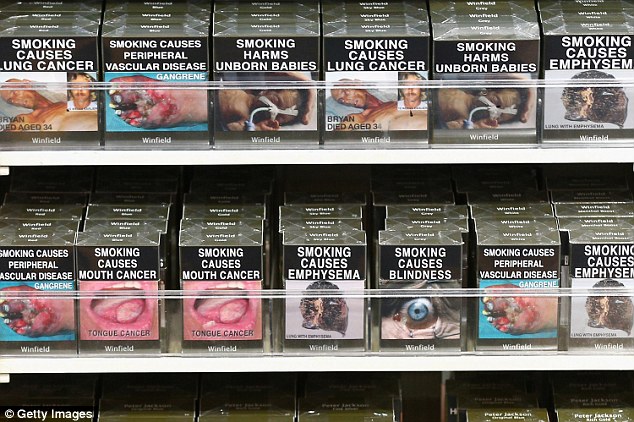Illegal tobacco industry flourishing in Australia as government hikes taxes
THE tobacco tax hike sounds like an unimpeachable idea, but it’s fuelling a troubling illegal industry linked to organised crime.
Scott Morrison announced in the Budget that annual excise increases of 12.5 per cent would continue for four more years, making Australia’s stance on smoking one of the toughest in the world.
With the price of a pack of cigarettes set to rise to $40, some public health bodies have hailed the move as an effective way to stop people lighting up.
But instead of quitting, many smokers are buying cut-price cigarettes from the dangerous and unregulated illicit industry, which distributes 2.4 million kilograms of tobacco across the country every year.
The Budget expects to raise $4.7 billion from tobacco addicts, but not a cent will be spent on anti-smoking campaigns, making some claim the tax hike is more punishment than practical solution.
Police seize thousands of packets of illicit tobacco in Sydney’s Campsie and Hurstville in August.
INSIDE THE ILLEGAL INDUSTRY
As much as 14.3 per cent of tobacco consumed in Australia is bought through the black market, taking $1.4 billion out of the revenue earned from taxes each year.
A huge range of brands and counterfeit imitations are sold illegally by small grocery stores and individuals across the country.
Since smoking is known to be highly addictive, raising prices isn’t necessarily going to force people to quit. But since smokers are more likely to be socio-economically disadvantaged, many will look for cheaper ways to get their fix.
That could mean turning to illegal traders, where a pack of 20 cigarettes from China could cost as little as $10 for a pack of 20. There’s no way of knowing what chemicals are in these unregulated products, so the health risks are even greater.
KPMG’s biannual report, Illicit Tobacco in Australia, revealed in November that illegal tobacco consumption declined marginally in the 12 months to June 2015, the first decline since 2012.
This was partially offset by a large rise in unbranded “chop chop” tobacco.
The industry is dominated by serious and organised crime groups, who see the illegal tobacco trade as a low-risk, high-profit opportunity, according to a 2015 report by the Australian Crime Commission. The ACC said it was “highly likely” the market will remain attractive to crime rings for these reasons.
‘CHEAP WHITES’ AND VIETNAMESE TEA
“Cheap whites” or “illicit whites”, notably the Manchester brand, are a growing feature of the market. These are products made legally in a factory with the approval of an overseas licensing authority, but that do not meet product standards in Australia.
Since the closure of the legal domestic tobacco production industry in 2006, there has been an ongoing decline in the supply of homegrown tobacco to the illegal market.
But in May 2014, the Australian Taxation Office and Australian Federal Police seized around 350,000 illegal tobacco plants grown in regional Victoria, with an estimated excise value of $15 million.
There are regular seizures of tobacco and cigarettes as they the enter Australia, using all kind of clever tactics to bypass border control.
In September 2014, border control found around 2.2 tons of undeclared loose tobacco with an estimated tax revenue of $1.5 million hidden in foil packages labelled “Pandan Tea” entering the port of Melbourne from Vietnam.
In November 2015, officers discovered four million cigarettes with an estimated tax evasion value of more than $2.25 million declared as carpet tiles as they arrived in Sydney from Singapore. Others have worked with alleged corrupt industry officials on the Sydney waterfront and in the maritime supply chain.
“Serious and organised crime will use the same infrastructural spine upon which it imports prohibited drugs to import tobacco,” said Border Force CEO Roman Quaedvlieg in 2015’s senate estimates.
“We are seeing an increase in organised crime entities involved in this. I put it down partially to the fact that the excise in duty payable on tobacco is increasing.”
Just last month, the AFP and the Australian Border Force’s Tobacco Strike team dismantled a smuggling syndicate in Melbourne, seizing 13 million cigarettes, more than eight tons of loose leaf tobacco and $1.7 million in cash. Police believe the crime ring may have evaded up to $45 million in duty and taxes in the past 12 months.
The Budget has allocated the Tobacco Strike team $7.7 million in the Budget over two years for clawing back lost revenue. But $3.35 million a year won’t go very far towards stopping a $1.4 billion industry.
‘WE’RE THE EASIEST TO HIT’
It’s hard to advocate making money from a dangerous addiction, but small businesses say they are bearing the brunt of the pain from the tobacco tax hikes as customers turn to illegal traders and smugglers.
Four years of annual 12.5 per cent increases have already taken their toll on retailers, who say the government is not sufficiently committed to cracking down on illicit sales of tobacco products.
Chiang Lim, General Manager of the Alliance of Australian Retailers, told news.com.au: “I can understand why some would say this is fantastic anti-smoking measure, but police need to realise there are unintended consequences.
“We’re losing about 14 per cent of sales ... We also lose out on other products and services they use in our stores.
“The ones who can absorb this are the bigger businesses, who are doing parallel importing of their own tobacco products. We’re the poor guys, the easiest to hit.
“Australia was on target in terms of the obviously deliberate decline of smokers over time. I can only conclude the government needs money.”
Mr Lim, who sits on the board of the government’s Illicit Tobacco Industry Advisory Group, said he had heard from one retailer in Tasmania that police had ignored his report of an illegal seller for three months.
“Newsagents as a category are already under threat. How do you compete with a competitor who’s blatantly selling illegal products and the authorities are not interested?
“We’re trying to do the right thing. We pay our taxes, we pay staff.”
SO WHAT’S THE HEALTH BENEFIT?
The question is whether the tax hike is simply about a “nanny state” punishing addicts and assisting a burgeoning criminal trade, or if it’s really going to help smokers quit.
Recent health campaigns, the introduction of plain packaging and stricter rules on where you can smoke have seen the nation’s smoking population plummet from 25 per cent in 1993 to 13 per cent in 2013, and it’s hoped that will continue.
University of Melbourne public health physician Dr Nathan Grills said thousands of lives could be saved by the tax hike, while Quit Victoria’s director Dr Sarah White said increasing prices was the “single most effective way to get people to stop smoking and get kids to stop taking up smoking”.
But Mr Lim doubts the government’s motives, calling it “appalling” that after eight consecutive years of tobacco excise tax increases, no money has been reserved specifically for anti-smoking education or cessation programs or tobacco-related health services.
There’s also an argument that smokers should pay up because they cost the health system a fortune. But Dutch researchers found in 2008 smokers cost less to treat in the long run because they die earlier, the New York Times reported.
The Cancer Council Victoria’s online resource, Tobacco in Australia, reports: “Smoking increases some health care costs because of the higher prevalence of diseases caused by smoking (in smokers and ex-smokers who are still alive).
“However, certain other health care costs are lower than they otherwise would be because of the premature deaths of many people who smoked over the past 40 years. These people did not live to use health care that they otherwise would have.”
Is a tax hike the best solution to our smoking problem? That’s the burning issue.
http://www.news.com.au/finance/econ.../news-story/c1d28c0a1919d0fbcc499579a2386b28?




